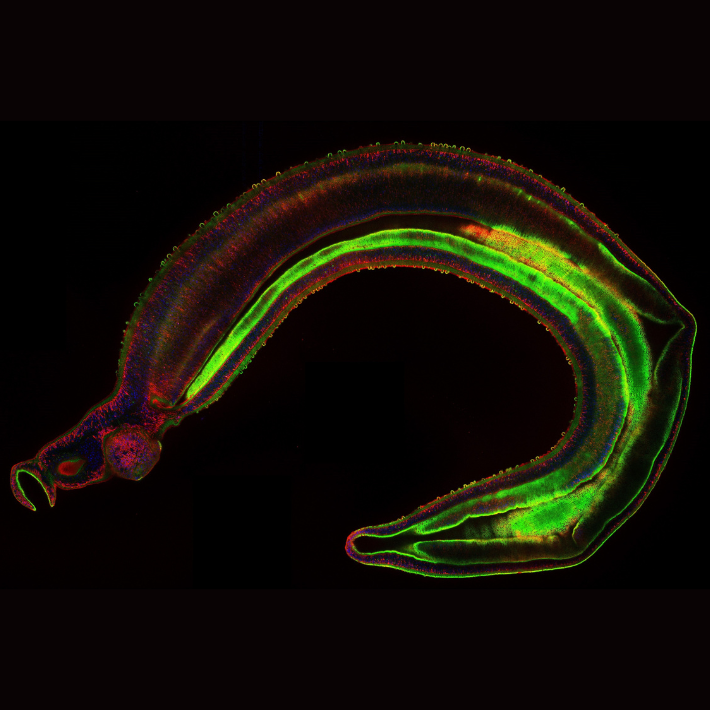LUMC leads research on vaccine against parasitic worms
This schistosome, a parasitic worm, is actually about 1 centimeter in size and resides in the bloodstream. (Photo: Noor Kuhlemaijer, Leiden University Medical Center)
&width=710&height=710)
Research on vaccines against parasitic worms (also called helminths) has so far been limited. Based on studies with volunteers exposed to helminths in a controlled and safe manner, scientists really only just know something about how people's immune response to worms works. The researchers now want to apply this acquired knowledge to developing vaccines. To do so, they will use the latest methods, such as the mRNA technology that has also been used for some coronavirus vaccines.
Infection occurs after skin contact with larvae
The focus of the project, called WORMVACS2.0, will be on infections with hookworms and schistosomes. According to the latest estimates, 500 to 800 million people are infected with hookworms and about 250 million with schistosomes. The infections occur primarly in tropical and subtropical areas.
Infections with intestinal hookworms occur when hookworm larvae from soil penetrate the human skin. The worms then nest in the intestines. Schistosomes also enter through the skin, but after contact with larvae living in water. The parasite penetrates the skin and adult schistosomes reside in the blood.
Severe inflammation and organ damage
Helminth infections lead to various health problems. In particular, schistosomes can cause severe inflammations and damage to organs. Drugs for treatment of helminth infections are available but, due to the lack of development of immunity, people living in areas where these parasites occur get continuously reinfected. Vaccines can help to disrupt this cycle.
'Vaccines needed to fight devastating diseases'
The project is a collaboration between researchers of various institutes in Europe, Africa, United States, and Australia. LUMC-professor Cornelis Hokke, coordinates the consortium: “Helminth infections cause a massive global health burden. The discovery and development of effective vaccines and an innovative helminth vaccine development pipeline will provide essential contributions to our toolbox for control and prevention of these devastating diseases
The project receives 6.9 million euro funding from the European Commission (Horizon Europe). For more information, visit wormvacs.org.